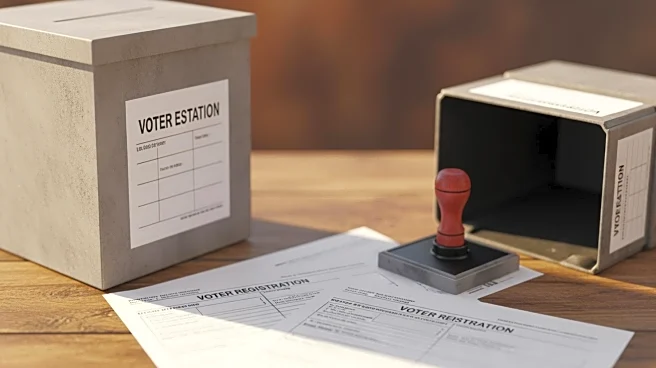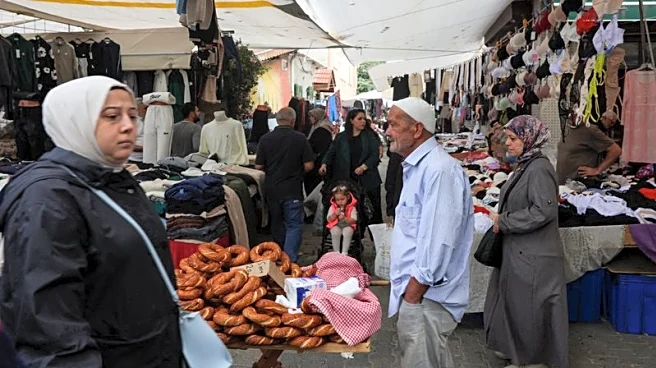What's Happening?
India has initiated a Special Intensive Revision (SIR) of electoral rolls across 12 states, affecting over 510 million voters. The exercise aims to ensure no eligible voter is excluded and no ineligible
name remains on the rolls. However, migrant workers, particularly those in Delhi's Rangpuri Pahari slum, express concerns over the financial burden of traveling home to verify their voter registration. Many fear losing wages and job security if they take time off for the revision process. The Election Commission has introduced online verification to ease the process, but many workers find it unfamiliar or risky. The revision also raises concerns about gaps in official documents and potential impacts on access to welfare schemes. The EC assures transparency and sufficient time for filing claims and objections, but the timing of the revision, close to upcoming elections in states like West Bengal, adds to the anxiety among migrant workers.
Why It's Important?
The voter roll revision is crucial for maintaining the integrity of India's electoral process, ensuring that all eligible voters are accurately represented. However, the concerns raised by migrant workers highlight the challenges faced by vulnerable populations in accessing their democratic rights. The financial and logistical burdens associated with the revision process could disenfranchise many, particularly those in the unorganized sector. The situation underscores the need for more accessible and inclusive electoral processes that accommodate the realities of migrant workers. The potential impact on access to welfare schemes and the fear of being wrongfully branded as illegal immigrants further complicates the issue, highlighting the intersection of electoral integrity and social justice.
What's Next?
The Election Commission will continue the voter roll revision process, with efforts to address the concerns of migrant workers through online verification and transparent procedures. Stakeholders, including civil society organizations and political leaders, may advocate for more inclusive measures to ensure that vulnerable populations are not disenfranchised. The upcoming elections in states like West Bengal will test the effectiveness of the revision process and its impact on voter participation. The EC's commitment to transparency and sufficient time for filing claims and objections will be crucial in addressing the concerns raised by migrant workers.










